In an increasingly environmentally unstable planet, we should consider the impacts in all areas of our lifestyle, including where to stay when we travel.
Surprisingly (or not), hotels are a wasteful business, often impacting negatively on the local environment.
Thankfully a new sector of environmentally conscious hotels is emerging, branded as ‘eco lodges’ or ‘eco resorts’.
It’s this new style of low impact accommodation which is allowing mindful travellers to rest their heads in places that have minimum possible impact on the environment, and even better contributes to the local community.
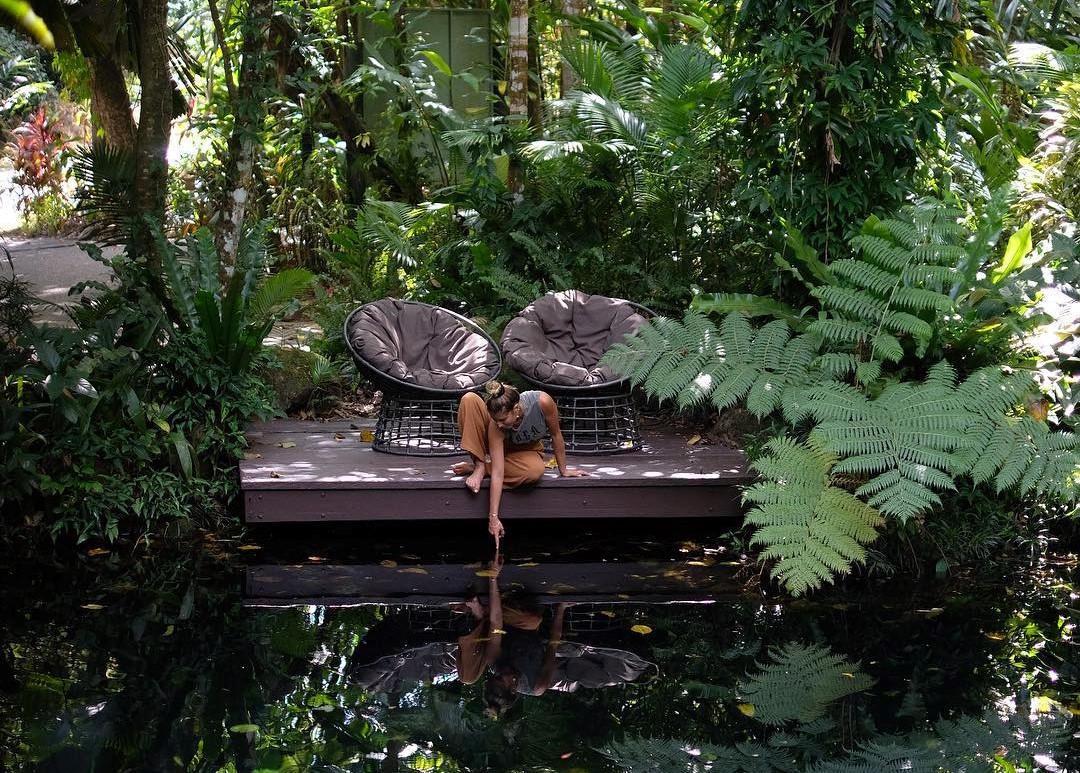
There are a wide variety of green certifications worldwide and one international certification board Eco Tourism. Eco lodges can be catered to a more exclusive market, however this isn’t always the case. To find out what to look for in ‘eco’ accommodation, see here.
‘The hotel sector accounts for around 1% of global emissions and though this may seem small, growth in the sector means that the sector will increase its negative environmental impacts if it does not start to measure and reduce its carbon emissions.’ – International Tourism Partnership, 2018
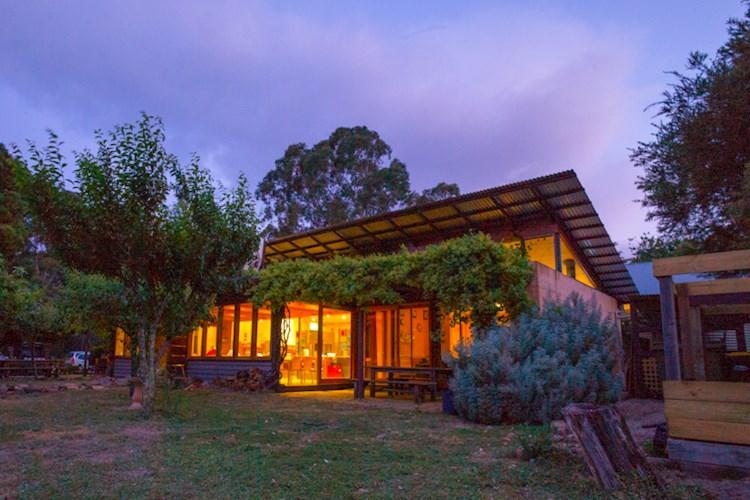
Image via YHA
Halls Gap – Grampians Eco YHA
Grampians National Park, Victoria
Cost: From $30p/n for 1 adult
This youth hostel is an eco-certified and stylish base in the Grampians National Park, for those that don’t want to spend a fortune on eco adventures.
The lodge is well worth the money, with fresh eggs from the on-site chickens, herb garden and an outdoor BBQ. It was designed with the environment in mind, through conservation and sustainable practices.
This includes low energy lighting, organic waste composted, solar hot water system and donations to local wildlife centre. The Grampians National Park also happens to be one of the most spectacular spots for native wildlife and hikes.
The ECO Certification program assures travellers that certified products are backed by a strong, well managed commitment to sustainable practices and provides high quality nature-based tourism experiences.
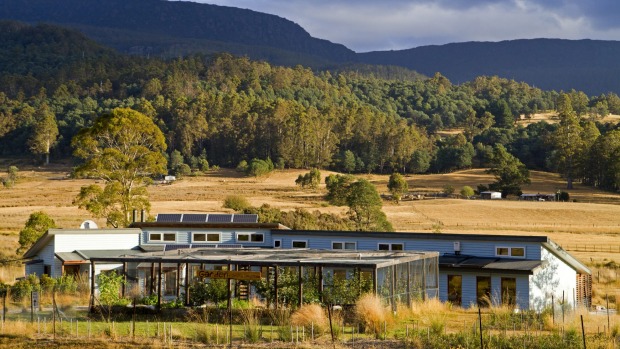
Image via Traveller
Forest Walks Lodge
Deloraine, North East Tasmania
Cost: From $120 p/n for 2-3 adults
This walking lodge is situated close to main roads, but far enough away to feel completely secluded. It’s surrounded by incredible scenery such as mountains and birds, with a resident chef producing meals from local and in season produce. A local couple built it with the environment in mind, hoping to share their passion for Tasmania’s wildlife and forests.
‘The building is constructed in a shallow arc to trap sunlight and heat. A north-facing stone wall absorbs the heat of the day and releases it through the night, helping the lodge maintain a constant, comfortable temperature through winter and summer. Electricity is generated by solar panels, with a water turbine for cloudy days. The lodge’s rugs are hand-woven by a neighbour.’ – Review snippet by The Traveller
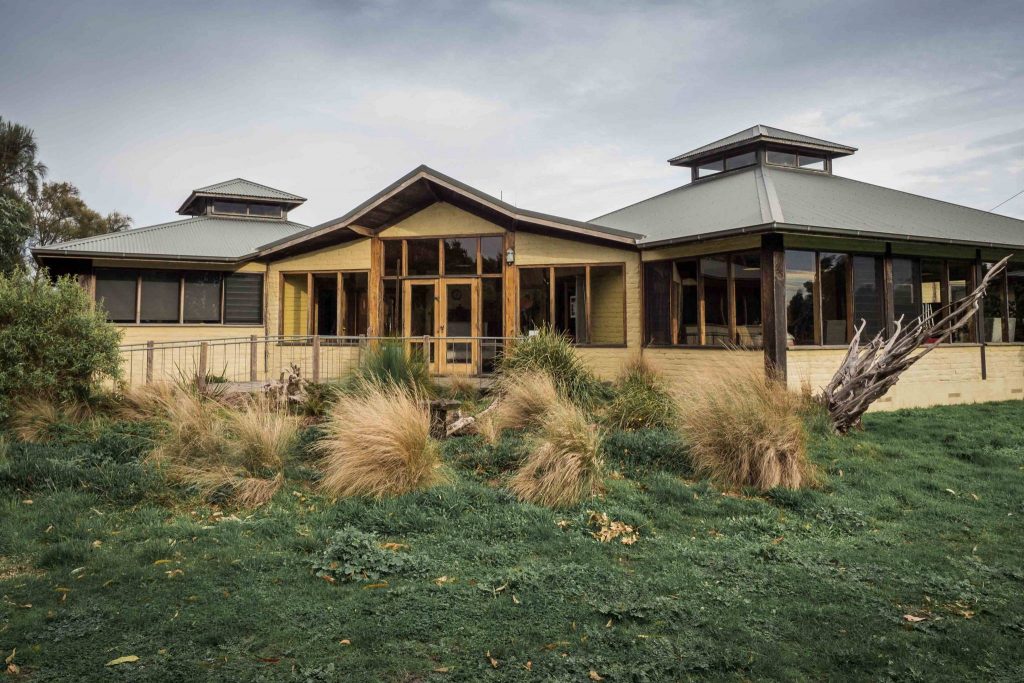
Great Ocean Ecolodge
The Great Ocean Road, Victoria
Cost: From $395 p/n for 2 adults
This award-winning spectacular lodge is surrounded by unique wildlife and situated near one of the world’s most famous coastlines. The lodge is a social enterprise owned by The Conservation Ecology Centre, which is committed to conservation and sustainability on the Victorian coastline.
The lodge itself is designed with sustainability and education in mind; with on site water supply from filtered rainwater, solar powered and solar heated water, biodegradable products, garden to plate menu, sustainable landscaping and conscious waste management.
‘We are committed to sustainable living, consequently, from its very conception we were determined to build and operate a Conservation Ecology Centre and an integrated Ecolodge that are true in every way to our philosophy. The Conservation Ecology Centres research room is located on site…’
With the Ecology Centres research room on-site, the eco lodge experience offers more than just a place to stay. Visitors are providing vital funding to conservation research, experiencing some of the most beautiful wilderness in the world and experiencing a sustainable way of living.
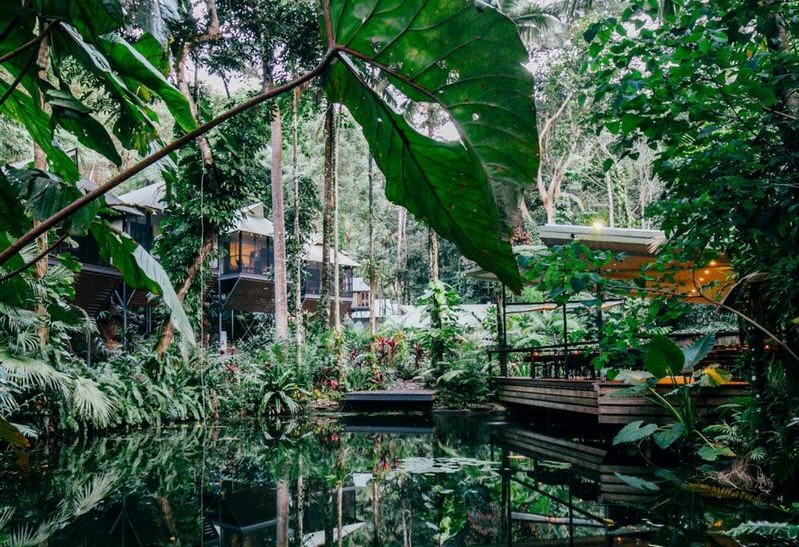
Image Via Daintree Eco Lodge
Daintree Eco Lodge & Spa
Daintree Rainforest, Queensland
Cost: From $435 p/n for 2 adults
This stunning location has recently been awarded Advanced Ecotourism and Climate Action Business Certification for products, accommodation and guided tours. The Daintree Rainforest is a World-Heritage-listed site, with extensive wildlife and an abundance of green.
The boutique accommodation offered at the Daintree Eco Lodge is luxury, with daily room service, quality and local organic food and no TV / WIFI. The site produces its own renewable energy, offsets emissions, recycles water, recycles compost, and much more (see here). There are also opportunities whilst staying to go on a local cultural history walk to learn about the area and local flora and fauna.
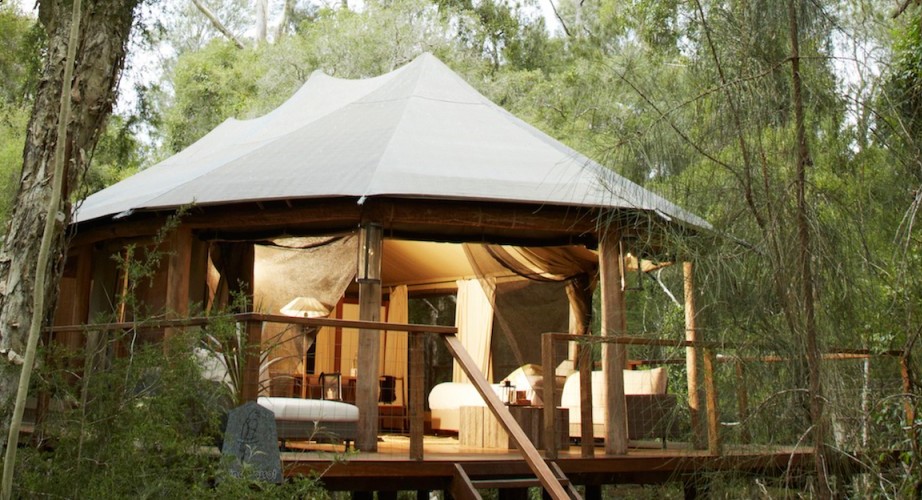
Image via Paperbark Camp
Paper Bark Camp
Jervis Bay New South Wales
Cost: From $615 p/n for 2-3 adults for a Deluxe Safari Tent
This experience is slightly pricey but well worth it (trust me), this is one of the best experiences you’ll ever have. This eco ‘glamping’ experience is situated in Jervis Bay, surrounded by three national parks; The Booderee National Park, Jervis Bay National Park and Jervis Bay Marine Park. The surrounding area provides a wilderness lover’s playground with kayaking, pristine beaches and stunning hikes.
‘Ecotourism is more far reaching and holistic in it’s approach. The bar has been set a lot higher and it is no longer good enough to just have solar panels and dual flush toilets!’
The camp aims to provide a unique and authentic Australian bush experience, authentically focusing on ‘ecotourism’. The camp makes substantial efforts to decrease waste and increase guest experience is focused on environmental knowledge. There is no air conditioning, rainwater usage, solar powered electricity, no fencing for wildlife, revegetation areas and much more. It has received Advanced Eco Accreditation from Ecotourism Australia and is part of the Eco Lodges of Australia group.


